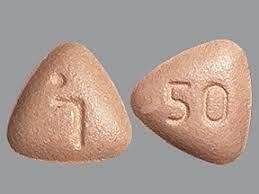Quviviq Side Effects
Generic name: daridorexant
Medically reviewed by Drugs.com. Last updated on Jul 17, 2025.
Note: This document provides detailed information about Quviviq Side Effects associated with daridorexant. Some dosage forms listed on this page may not apply specifically to the brand name Quviviq.
Applies to daridorexant: oral tablet.
Precautions
It is very important that your doctor check your progress at regular visits to make sure this medicine is working properly and to check for unwanted effects.
If your condition does not improve or if they get worse within 7 to 10 days. Tell your doctor right away. Insomnia that lasts longer than this may be a sign of another medical problem.
This medicine may be habit-forming. If you feel that the medicine is not working as well, do not use more than your prescribed dose. Call your doctor for instructions.
This medicine will add to the effects of alcohol and other CNS depressants (medicines that can make you drowsy or less alert). Some examples of CNS depressants are antihistamines or medicine for allergies or colds, sedatives, tranquilizers, or sleeping medicine, other prescription pain medicine or narcotics, medicine for seizures or barbiturates, muscle relaxants, or anesthetics, including some dental anesthetics. Check with your doctor before taking any of these medicines while you are using this medicine.
This medicine may cause some people, especially older persons, to become drowsy, dizzy, or less alert than they are normally, which may lead to falls, fractures, or other injuries. Even though daridorexant (the active ingredient contained in Quviviq) is taken at bedtime, it may cause some people to feel drowsy or less alert on arising. Do not drive or do anything else that could be dangerous until you know how this medicine affects you.
Tell your doctor right away if you start to feel depressed or any unusual thoughts or behaviors that trouble you (including suicidal thoughts), especially if they are new or get worse quickly.
This medicine may cause you to do things while you are still asleep that you may not remember the next morning. You could drive a car, sleepwalk, have sex, make phone calls, or prepare and eat food while you are asleep or not fully awake. Tell your doctor right away if any of these things occur.
This medicine may cause sleep paralysis (temporary inability to move or talk for up to several minutes while you are going to sleep or wake up) or have cataplexy-like symptoms (temporary weakness in your legs). Tell your doctor right away if you have these symptoms while you are using this medicine.
Do not take other medicines unless they have been discussed with your doctor. This includes prescription or nonprescription (over-the-counter [OTC]) medicines and herbal or vitamin supplements.
Serious side effects of Quviviq
Along with its needed effects, daridorexant may cause some unwanted effects. Although not all of these side effects may occur, if they do occur they may need medical attention.
Check with your doctor immediately if any of the following side effects occur while taking daridorexant:
More common side effects
- relaxed and calm
- sleepiness
- unusual drowsiness, dullness, tiredness, weakness, or feeling of sluggishness
- unusually deep sleep
- unusually long duration of sleep
Incidence not known
- changes in behavior
- discouragement
- feeling sad or empty
- hives, itching, skin rash
- irritability
- lack of appetite
- large, hive-like swelling on the face, eyelids, lips, tongue, throat, hands, legs, feet, or sex organs
- loss of interest or pleasure
- seeing, hearing, or feeling things that are not there
- thoughts of killing oneself
- trouble concentrating
Other side effects of Quviviq
Some side effects of daridorexant may occur that usually do not need medical attention. These side effects may go away during treatment as your body adjusts to the medicine. Also, your health care professional may be able to tell you about ways to prevent or reduce some of these side effects.
Check with your health care professional if any of the following side effects continue or are bothersome or if you have any questions about them:
More common side effects
See also:
For healthcare professionals
Applies to daridorexant: oral tablet.
General adverse events
The most common adverse reactions were headache, somnolence, and fatigue.[Ref]
Gastrointestinal
- Common (1% to 10%): Nausea[Ref]
Nausea includes nausea, vomiting and procedural nausea.[Ref]
Hypersensitivity
Postmarketing: Hypersensitivity, angioedema, rash, urticaria[Ref]
Nervous system
- Common (1% to 10%): Headache, dizziness[Ref]
Headache includes headache, tension headache, migraine with and without aura and head discomfort.
Dizziness includes, dizziness, vertigo and labyrinthitis.[Ref]
Psychiatric
- Common (1% to 10%): Somnolence or fatigue
- Uncommon (0.1% to 1%): Sleep paralysis, hypnagogic and hypnopompic hallucinations
Postmarketing: Nightmares, abnormal dreams[Ref]
Somnolence or fatigue includes somnolence, sedation, fatigue, hypersomnia and lethargy.[Ref]
References
1. (2024) "Product Information. Quviviq (daridorexant)." Idorsia Pharmaceuticals UK Ltd
2. (2024) "Product Information. Quviviq (daridorexant)." Idorsia Pharmaceuticals US Inc., SUPPL-12
Frequently asked questions
- Quviviq vs. Ambien: How do they compare?
- What is the mechanism of action for Quviviq?
- How do I get and use a Quviviq coupon or savings card?
More about Quviviq (daridorexant)
- Check interactions
- Compare alternatives
- Pricing & coupons
- Reviews (163)
- Drug images
- Dosage information
- During pregnancy
- FDA approval history
- Drug class: miscellaneous anxiolytics, sedatives and hypnotics
- Breastfeeding
- En español
Patient resources
Professional resources
Related treatment guides
Further information
Quviviq side effects can vary depending on the individual. Always consult your healthcare provider to ensure the information displayed on this page applies to your personal circumstances.
Note: Medication side effects may be underreported. If you are experiencing side effects that are not listed, submit a report to the FDA by following this guide.

